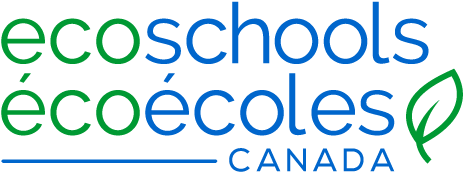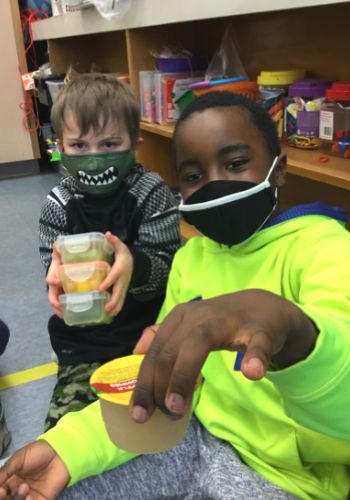The food we eat has an impact on our climate, and meat in particular has a much higher carbon footprint than other sources of plant-based proteins, fruits, vegetables, and grains. To celebrate Nutrition Month this past March and explore the connection between meat and our environment, École élémentaire Pavillon de la jeunesse in Hamilton, Ontario, decided to host Meatless Mondays for their school community.
Meatless Mondays is an EcoSchools program action that encourages participants to bring meatless lunches to school once a week, reducing the amount of meat consumed and raising awareness about the impact our food choices have on our health, land, and water resources. Over 260 students at École élémentaire Pavillon de la jeunesse engaged in learning about the impacts of producing and eating meat, such as cutting down forests to create pasture for animals, using large amounts of water and resources to raise livestock, and the greenhouse gas emissions they produce.
To get the community excited about the school’s first Meatless Monday campaign, students in the school’s Club Éco journal posed a question on a bulletin board for other students to consider: “Why is excessive consumption of meat bad for the climate?”
Credit: École élémentaire Pavillon de la jeunesse
Credit: École élémentaire Pavillon de la jeunesse
Members of the school’s EcoTeam created posters, social media messages, and sent letters to staff and families encouraging participation in the campaign. As a result, over 150 students and teachers pledged to participate in Meatless Mondays, and 16 families pledged to cook a meatless lunch once a week at home throughout the year going forward.
École élémentaire Pavillon de la jeunesse’s efforts show that the small actions we take, such as reducing the amount of meat we eat in our weekly lives, can combat climate change and have positive impacts both in our school communities and for the planet as a whole. Congratulations to École élémentaire Pavillon de la jeunesse for getting the community engaged in Meatless Mondays and reducing their impact on the environment.
Project 2050 is a collaboration between EcoSchools Canada and Earth Rangers, a multi-year project that supports students and their communities to accomplish environmental actions that contribute to Canada’s 2050 climate targets.


